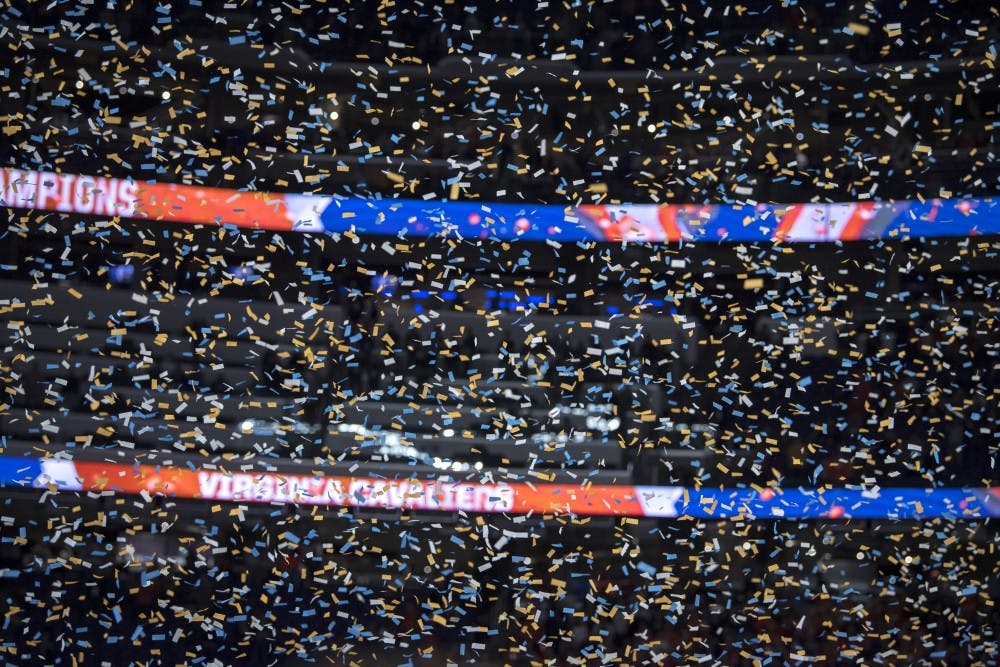College athletes generate more than $1 billion in revenue, and receiving scholarship money — as well as other perks provided to them by universities — just isn’t enough. Compared to how much revenue they’re generating — money that’s going into other people’s pockets — it isn’t even close to the fair compensation they deserve.
Essentially, universities exploit college athletes and benefit from their unpaid work. It’s as simple as that.
At the end of September, California passed a bill — known as the “Fair Pay to Play Act” — that would allow for college athletes to “profit from their name, image and likeness,” according to the Los Angeles Times. On Tuesday, the NCAA Board of Governors voted unanimously in agreement with it.
This game-changer of a law lifts just one of the restrictions placed by the NCAA on players making money, and is a good start in addressing the unjust exploitation of college athletes by universities. After all, not all of them will end up making it to the pros where they’ll receive actual paychecks. In men’s basketball, for example, only 4.2% of draft-eligible Division 1 players were chosen in the 2018 NBA draft, according to NCAA.org.
“Professional opportunities are extremely limited and the likelihood of a high school or even college athlete becoming a professional athlete is very low,” the report said.
For many college athletes — especially for those who might come from low-income families — that means struggling to get by while dedicating so much time and energy to playing for their university’s team could end up being for nothing.
Also, schools sometimes resort to illegally paying players to ensure their commitment — and if students are able to instead profit off their likeness, they wouldn’t have to rely on this as a source of income.
This law — set to be implemented by Jan. 2021 — is the first step in bettering this issue, however, there’s still a lot of room for the “Fair Pay to Play Act” to improve. And there are other aspects of this nationwide problem that still need to be addressed.
To start, allowing college athletes to profit off of signing endorsement deals, having their name, image or likeness be used as well as signing various licensing contracts means not every college athlete will see the benefits of the new law.
High-profile players will most definitely be presented with opportunities to make money off of appearing in ads, brand sponsorships and more — but other players who are just as hardworking will still be left working for free.
It’s also important to be aware of the gender pay gap that is bound to happen once the new rule goes into effect. Mirroring the striking pay differences that are prominent in professional sports, female athletes at Michigan State will most likely end up making significantly less money than male athletes. And lawmakers, as well as the NCAA, should factor that inevitable outcome in as they work out the details of the act.
The “Fair Pay to Play Act” will change college-level sports as we know it, and the NCAA’s decision to stand by it was a surprising turn. College athletes work hard and deserve to be compensated for it. We support the intentions of the act, however more must be done to reduce the exploitation of college athletes that will continue even after it’s in place.
The State News Editorial Board is composed of Editor-in-Chief Madison O’Connor, Managing Editor Mila Murray, Copy Chief Alan Hettinger, Campus Editor Kaitlyn Kelley, City Editor Evan Jones, Sports Editor Paolo Giannandrea, Photo Editor Sylvia Jarrus, Multimedia Editor Haley Sinclair, Social Media and Engagement Editor Wolfgang Ruth, Staff Representative Matt Schmucker and Diversity and Inclusion Representative Edwin Jaramillo.
Support student media!
Please consider donating to The State News and help fund the future of journalism.
Discussion
Share and discuss “Editorial: The 'Fair Pay to Play Act' is a good start, but shouldn't end there” on social media.







